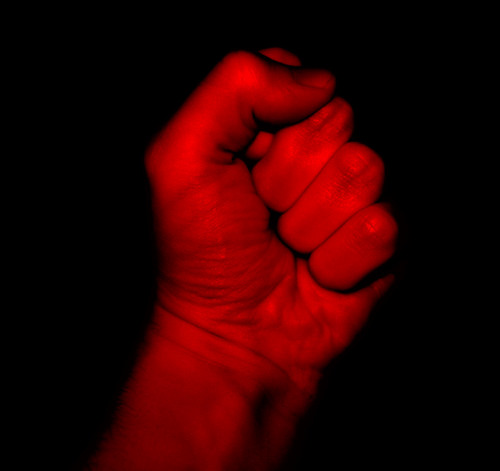I don’t own an American flag. When I say the pledge of allegiance I omit the phrase “under God.” There was a time in my life when I questioned the morality of capitalism, and I frequently criticize the U.S. government for the immorality of many of its actions. From the bombing of Cambodia to the mismanagement of the foster care system there are countless things my nation has done of which I am not proud, and my vocal criticism of some aspects of our nation’s policy has from time to time led some to question my patriotism. Among certain circles, it would seem that dissent is evidence of disloyalty. For my own part, I think there’s a difference between pride in one’s nation, its ideals, and having pride in every act of its government. All too often our society confuses blind-nationalism with patriotism, when in fact the two terms are far from synonymous.
Few who enjoy the label “patriot” would deny that fighting for one’s country is among the highest forms of service. Today, as has always been, society generally thinks of “fighting” for one’s nation as meaning military service. Although there can be no doubt that military service represents one key way in which to fight on behalf of your nation, it seems an absurd notion that this is the only way to do so. Throughout the history of the United States there are countless examples of men and women who bravely “fought” for their nation without ever raising arms against foreign adversaries. Examples of such individuals include the likes of Martin Luther King Jr, Betty Friedan, Eugene V. Debs, and Henry David Thoreau. The battles these heroes fought for their country are of a different kind then soldiers have fought on the nation’s behalf, but the victories which men like Martin Luther King won for the country are just as important as any of the victories secured on a battlefield. These men and women, who were dissidents in their respective ages, have, through their actions and their sacrifices, expanded the rights and liberties of all Americans. Fighting for one’s country does not just mean defending it against threats from outside our borders, but also includes protecting its values from erosion from within.
It is the duty of every American to hold our government accountable to the ideals upon which this country was founded. For my own part, I try to do this in the limited way I can. From attending anti-war rallies to trying to convince a classmate of the immorality of “water-boarding” I strive to reverse the failings of my country. It is for love of the American experiment that I voice my views, for it pains me to see the values of my country compromised. I will continue as I have in the past to oppose any American policy that seems to contradict my understanding of what America is supposed to be, and I encourage others to do the same. Their views needn’t be the same as mine, but I hope that many Americans will dissent. Ultimately, it is only when the people break with the injustice of the status quo that the march of liberty is propelled forward. It is possible that I am misguided in my beliefs. I may very well be wrong about what is best for my country, but I know that it is dissent that has moved us forward. I hope that I am right and that I can help my country to be a more free and just nation, but I also know that even if I am wrong, being wrong is not as un-American as being silent.
Wednesday, February 4, 2009
The Patriotism of Dissent
Subscribe to:
Post Comments (Atom)

No comments:
Post a Comment